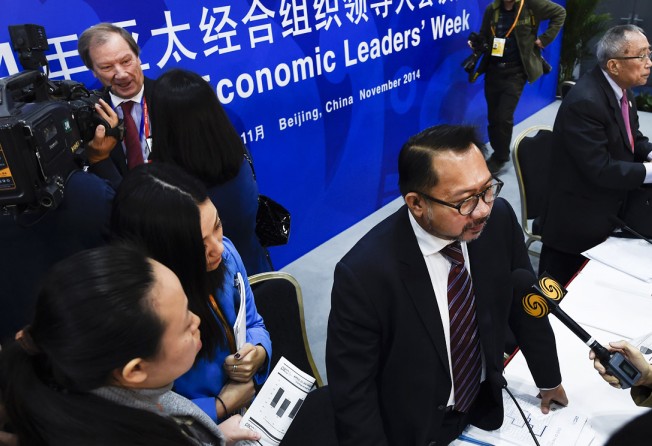Asia-Pacific free trade pact 'would boost global economy by US$2.4 trillion'
An Asia-Pacific free trade area promises huge benefits but depends on cooperation between China and the US, according to the Pacific Economic Cooperation Council (Pecc).

An Asia-Pacific free trade area promises huge benefits and would boost the struggling global economy by US$2.4 trillion, according to the Pacific Economic Cooperation Council (Pecc).
The group urged Apec leaders meeting outside Beijing next week to make the trade pact a key priority. Summit host China has already indicated it plans to complete a road map for the Free Trade Area of the Asia-Pacific (FTAAP).
Pecc, an official observer of the summit, said in its State of the Region report released on Friday that the global economy would be boosted by US$2.4 trillion if all 21 Apec economies joined the free trade pact.
Eduardo Pedrosa, Pecc secretary general, admitted the trade agreement would not happen overnight but stressed it was essential to lay the groundwork.
“The prospects for integration depend most importantly on cooperation between the region’s two largest economies, China and the United States,” Pedrosa said.
The US is currently pushing the Trans-Pacific Partnership (TPP) agreement which would involve 12 Apec members – but not China. In addition, the Regional Comprehensive Economic Partnership (RCEP) would included 10 Asean members as well as Australia, India, Japan, New Zealand and South Korea.
Pedrosa said both the TPP and RCEP were important steps on the way to a wider pact that would help integrate the region economically.
The Pecc report, which surveyed policymakers, business leaders and Apec members, said economic prospects in the region were currently muted.
It forecast 3.7 per cent economic growth in the region this year and 3.8 per cent growth next year. But the pace of growth is significantly lower than before the global financial crisis.
Growth in exports and imports was also expected to be slower than before the crisis, Pedrosa added.
“What is important is not just the pace of growth itself, but also the quality of growth,” he said.
The success of structural reforms in China and further liberalisation were seen as critical factors for future growth in Asia-Pacific, Pedrosa added.